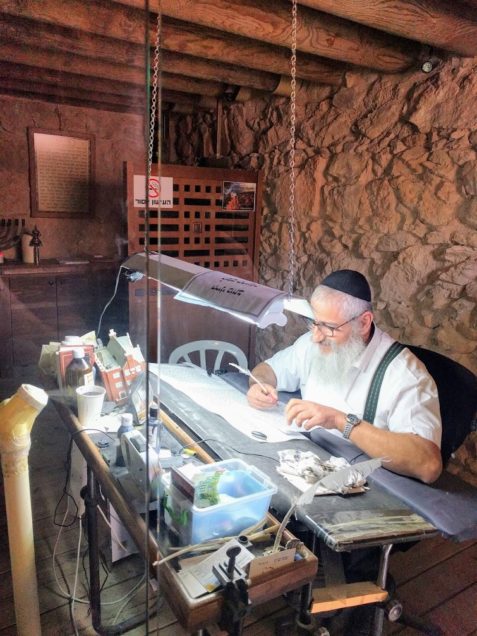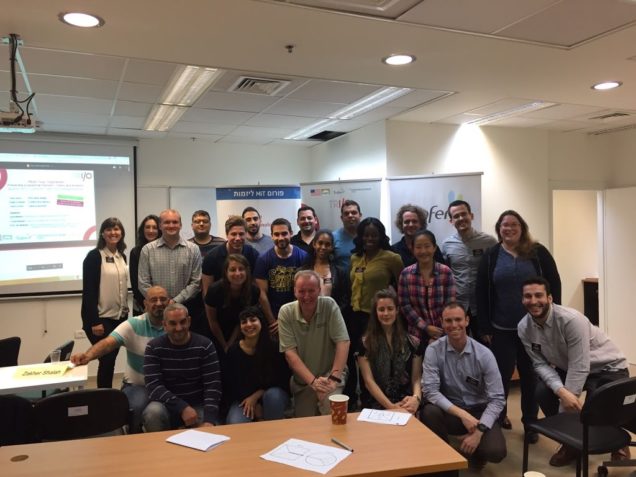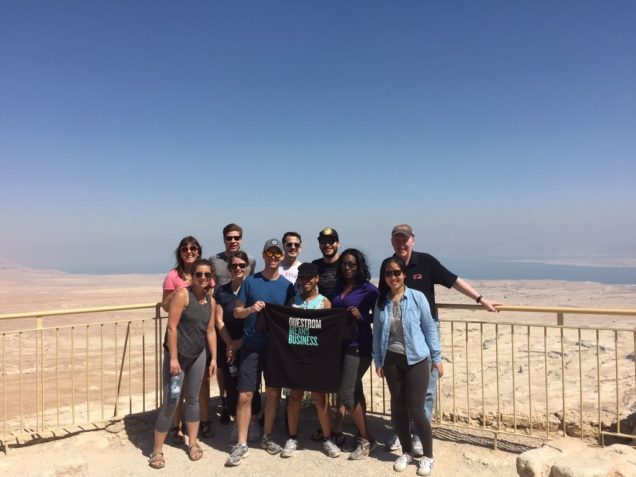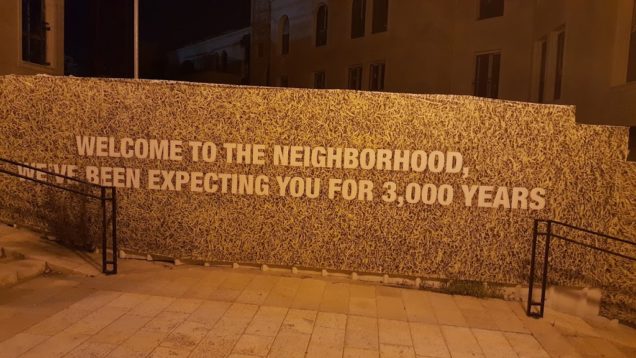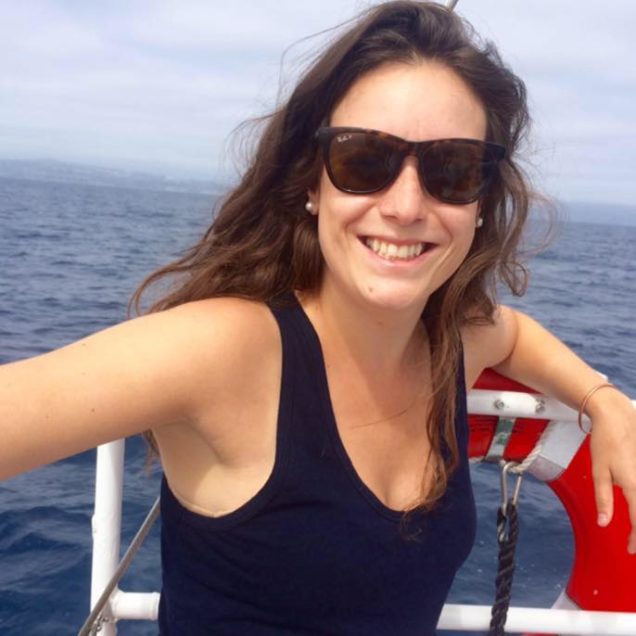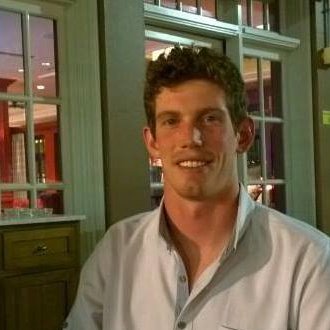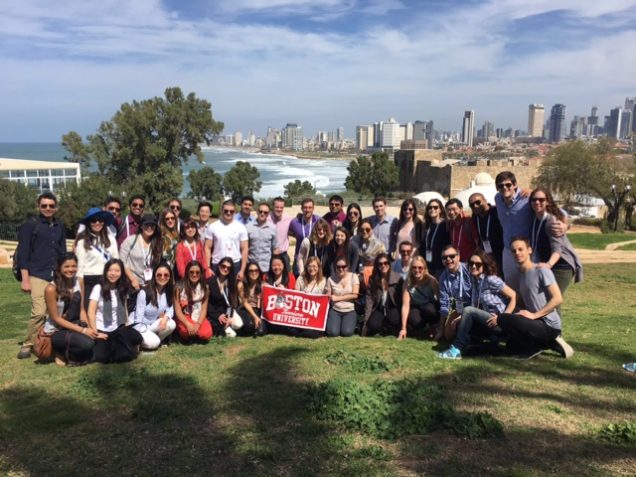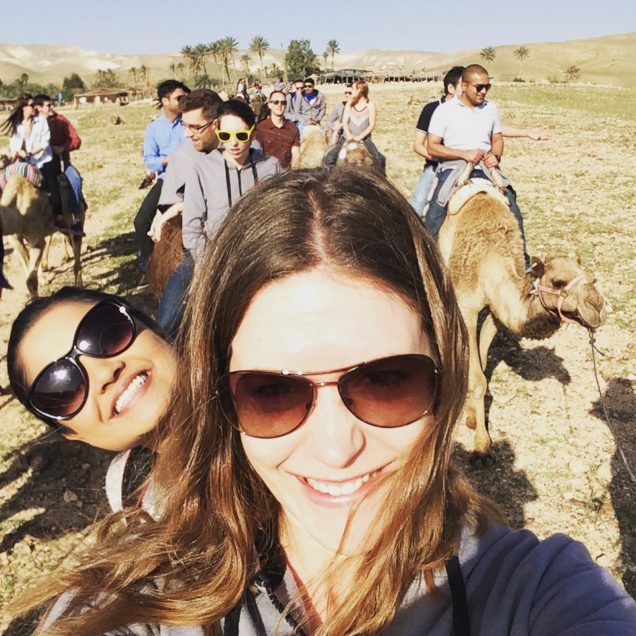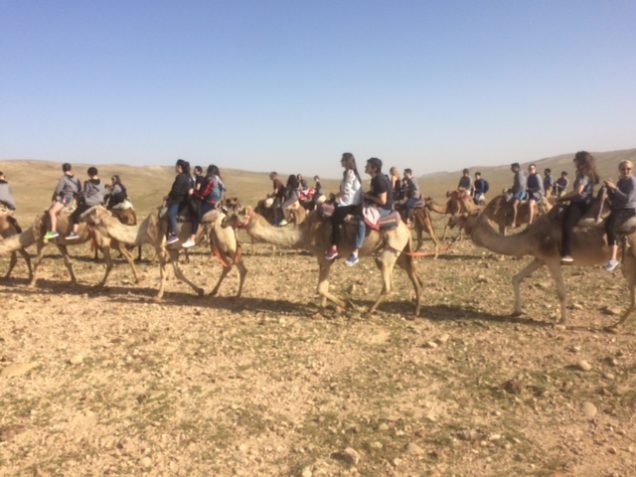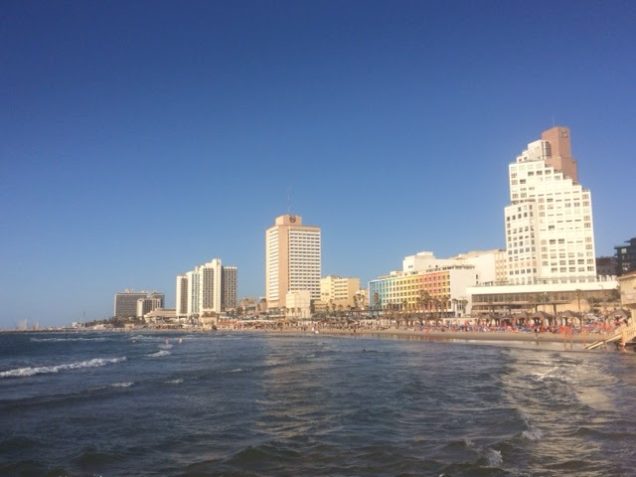Graduate Student Blog
Innovation Ecosystems: 10 Questrom MBAs + 9 Days in Israel = 1 Amazing Spring Break Elective
Due to its increasing popularity, the annual student-led Questrom iTrek to Israel was recently transformed into the Innovation Ecosystems Field Seminar, a 3-credit elective course with a focus on Israel as an entrepreneurial ecosystem. Dubbed “Start-up Nation,” Israel provided the perfect setting for ten first-year and second-year MBA students to learn about start-ups, their various funding sources, and the settings that allow them to grow and thrive.
With visits to Israeli start-ups, venture capital firms, incubators, and educational systems in Tel Aviv and Jerusalem, we met with new and established leaders in the Israeli start-up ecosystem, learning about what sets Israel apart from other countries and leads to its high per capita rate of entrepreneurs.
We visited companies such as Nano Dimensions (a leader in 3D printing technology) and GenCell (a leading provider of innovative fuel cell power backup solutions), incubators such as MassChallenge Jerusalem and Startup Nation Central, and educational systems such as Tel Aviv University and Technion Technology Transfer. In addition to the various site visits, we had the opportunity to visit the City of Jaffa, the Western Wall, the Dead Sea, Masada, and the Yad Vashem Holocaust Museum, among other sites.
Follow @QuestromGrad on Instagram!
We are traveling the world. Frequently.
I'm sounding the alarm, folks. We need to build the @QuestromGrad Instagram account into a social media juggernaut. I'm talking Kardashian levels of inexplicable popularity. And it starts with YOU. Yes, the person reading this. Actually, in fact, you. I made it exceptionally easy by tossing a picture up top for you to not only ogle, but to also interact with by smashing the "Follow" button on the top right of the picture. If you're interested in the comings and goings of the Questrom Graduate community, this is the Instagram account for you. We may even throw up a cute puppy/kitten picture to pander to our fledgling audience, but that's more of a "break in case of emergency" type of thing.
*Point* --> "Follow" --> *Click* --> Thanks!
BU’s VCIC MBA Team Wins Northeast Regional Competition: An Interview With Kenneth Hall
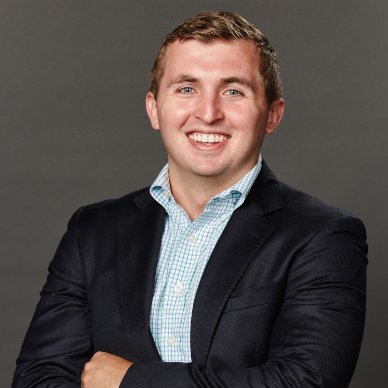 Another week has passed and that means it's time for another Questrom Blog Series. Luckily for me, interesting things keep happening every week and the blog is able to stay fresh. This week is no exception and I'm pleased to highlight a good pal of mine, Ken Hall, as he explains how his VCIC team was able to come out on top in the Northeast Regional competition.
Another week has passed and that means it's time for another Questrom Blog Series. Luckily for me, interesting things keep happening every week and the blog is able to stay fresh. This week is no exception and I'm pleased to highlight a good pal of mine, Ken Hall, as he explains how his VCIC team was able to come out on top in the Northeast Regional competition.
1. For those that don't know, what is the VCIC and what drew you to the competition?
The Venture Capital Investment Competition (VCIC) is the world’s largest venture capital competition and essentially puts students in the shoes of a venture capital firm. In the MBA division, there are 75 schools competing through 12 regional competitions for a spot in the global finals. The teams receive the decks of 3 actual startup companies that are raising capital (typically Seed or Series A startups) and have roughly 36 hours for due diligence before the morning of the competition. On the day of the competition, teams meet with each entrepreneur for Q&A, decide which firm they’re investing in, prepare a term sheet for the investment, present their investment decision to the judges, and, if selected, negotiate with the entrepreneurs. What drew me to the competition was just a passion for VC, the amount of learning in such a short time period, and, yes, being competitive. I’ve interned or consulted for a handful of VCs, but I feel like this has been the best learning experience I’ve had in the industry. Leading up to the competition, we were meeting with leaders in the industry and experienced partners in venture. And then, in 48 hours, you’re gaining experience and demonstrating understanding in valuations, term sheets, market research, due diligence, negotiations, presenting to partners, building rapport, and more. It was like drinking from a fire hose.
2. Congratulations on the win! What are the next steps for team BU going forward?
Right after the competition, we started mentoring the undergrad team at BU, and they wound up winning their regional as well. So BU’s undergraduate team will be competing in the global finals at the end of March, and our MBA team will be 1 of 12 schools competing in the global finals April 7-8 at UNC Kenan-Flagler; we will be competing against 6 other business schools from the United States and 5 other business schools throughout the world (India, Europe South, Europe North, Asia East, and Asia Southeast). Over the next month, we will be getting feedback from the judges from the regional competition (who are mostly partners of VCs in Connecticut and New York), meeting with a few advisors, and revising our process for the global finals. At the global finals, we will be reviewing 5 startups in the same 36-hour window and competing against the top business schools in the world, so we need to be sure we are at our absolute best. It’s going to be tough, but I think we have a very good shot at winning the whole thing.
3. As a full-time student, how did you find the time to make this all happen?
Honestly, I think learning outside the classroom is the most important part of business school. Questrom gives everyone the platform to show their capabilities and learn not only through classes, but also through competitions and projects. I think those are the best opportunities for learning because the school is giving us real-world experience and building our strengths as leaders and teammates. I obviously don’t neglect classes, but I do make these critical events more of a priority when they happen just because of the opportunities for learning in so many different ways.
4. You beat out MBA teams from Columbia, Harvard, Wharton, and Cornell - what do you think this does for BU's reputation in competitions like this?
Yeah, being matched up against four Ivy League business schools was pretty intimidating, but we were really confident going into the competition because we worked really, really hard and had a great group of mentors. I think wins like this can only help Questrom’s reputation – our students are just as smart and talented as those at the top 5-10 business schools. Our team came out of the toughest regional in the world, and BU’s team for the UAB Health Administration Competition just came in first in the country. It seems like every week we win something.
5. What advice would you give to students that may be interested in participating in VCIC next year? Thanks!
My advice would be to start learning now. There are so many resources available to help people learn about venture capital so easily, from books (“Venture Deals”) to podcasts (“Full Ratchet” and “20 Minute VC”) to blogs (“Feld Thoughts”). You can literally learn about everything important in a VC term sheet from a thought leader in the industry in 45-minutes for $0 on a podcast. The sooner that you learn the basics, the longer you have to internalize them. But my advice overall would be for everyone to just get involved and try to make the VCIC team. At BU, we have an internal competition to select the team for the regional. If you are not selected, you still learn a lot about startups and venture capital. If you are selected, you obviously are a part of another great experience and get to network with some incredible people in the world of venture.
6. Anything else?
I have to mention everyone on our team: Jon Glendinning, Jon Rosen, Ali Cook, Ian Griffith, and Mayank Jaiswal. Everyone really crushed it during the competition and came together. The day before the competition, we were working out of a classroom for like 10 or 11 hours, and it was just wild to see everything come together. If one person didn’t give it 100%, we wouldn’t have beat all of those great schools. But everyone on the team did, and we crushed it. Also, I have to give a shoutout to our advisors and mentors…Our advisors were Minde Kornfeld and Greg Stoller, and he really leads the organization of this and I’m pretty sure he doesn’t sleep. We also had a ton of help from last year’s team, especially Ben Courtney and John Fusi. And then we had some great help from entrepreneurs who practiced with us and leaders in VC like Don Nelson and John Murphy. So yeah, thanks to everyone and thanks to you for having me. I’m looking forward to talking with you in April after we win 1st in the global finals! Thank you!
SPEECH SPEECH SPEECH SPEECH:
*Before I sign off, I want to let you all know that we are all heading on Spring Break next week and it will be a barren wasteland over on this blog. But thank you for following thus far!*
TechConnect: The Fringe Version (An Interview with Lauren Finkelstein)
Week 2 of the Questrom MBA blog series kicks off with an interview with Lauren Finkelstein, President of the MS-MBA club (now the MSDi club) and the head woman in charge of the TechConnect conference. My aim is to keep these interviews fun, fresh, and not stuffy. Since Lauren is basically the funniest person in the entire class, her interview did not disappoint. Check it out:
1. This year's TechConnect was called the "Fringe Version" - can you explain what that means and how you guys came up with this theme?
With Boston being one of the nation's tech hotspots (pun intended), conferences on topics like security and cloud computing are aplenty. Our goal for TechConnect was to do something a bit different- we wanted to explore fringe technologies and focus on where tech could be going as opposed to where it currently is. For this reason, we focused on topics like machine learning and virtual reality. Here’s a fun insider fact for you – when we started planning the conference about ten months ago we knew we wanted to focus on emerging technologies, but the original theme name was Not Yo Mamma’s Tech Conference. However, as we reached out to potential speakers and moderators (including our own professors) we found ourselves explaining our ask with the phrase fringe technologies, a slightly more professional version of Not Yo Mamma’s Tech Conference.
2. What were some of the new takeaways from this year's conference?
Check out #TechConnect on Twitter and our own handle, @BizTechMBA to see what all the chatter was about during TechConnect. Even the Ministry of Economic Affairs of the Netherlands (how random and fun!) got in on the Twitter conversation, NBD.
3. This year's conference featured speakers from some of the top tech companies in the world. How involved are students in bringing in panelists and speakers?
Students are 100% responsible for recruiting talent to participate in TechConnect. We do this through a mix of our personal connections, introductions through our networks, and cold outreach. I have to give a big shout out to Jeff Bohn, VP of the MS-MBA Association who did a bang-up job of bringing in several of the day’s speakers.
4. As President of the MS-MBA Club, what was the most challenging part of collaborating with other clubs to put this whole thing together?
When companies put on conferences, they have people whose jobs are entirely dedicated to the event. Being a full-time student and holding multiple part-time jobs (not to mention tackling the spring job hunt rush) on top of planning the conference was definitely a challenge in time management. However, after surviving year one’s mod system, I think most of us are pretty comfortable balancing seemingly overwhelming workloads. We worked closely with the Entrepreneurship Club to put on the conference. The leadership of that club are also MS-MBA students, so we were very much on the same page in terms of the technologies we wanted to address at the conference. Of course both of our clubs have other initiatives going on in addition to TechConnect, so early on we established a regular meeting time to ensure that TechConnect stayed top of mind and that we were all on the same page.
5. What advice would you give to students that may be interested in running TechConnect next year? Thanks!
It takes a village!
If you are interested in the MS-MBA/MSDi, please check out their website and join them on Facebook. Thanks for checking out the Questrom Blog Series!
The MBA West Coast Networking Club Presents: The West Coast Trek
*Hey readers, my name is Winston Jones. I'm a 2nd year MBA student and I will be starting a weekly blog series of cool events and happenings around the Questrom community. The first one up is a brief interview about the West Coast Trek - one of the cooler events in the MBA program. I interviewed fellow 2nd year MBA student and the President of the West Coast Networking Club, Jason Marmillion, about the event.*
1. Can you briefly describe this year’s West Coast Trek?
The West Coast Trek is a student-led trek to the San Francisco Bay Area. We visit companies to learn more about their unique cultures and to try to get a sense of what it's like to live and work in the area. It's also an opportunity for trek members to make connections with business people, BU alumni, and local MBA students, as well as build stronger relationships with the other BU students that attend.
2. What companies did the group visit during the trek?
Netflix, Amazon 126 Labs, Pandora, IDEO, DJI, Google, San Francisco 49ers, Founder's Institute, Plug and Play, Autodesk, Zynga, CBS Interactive
3. What career opportunities were available for students?
By interacting with companies, students were able to explore internships and job opportunities more intimately and make direct connections with hiring managers at companies. On the other side, the expansive BU network in the Bay Area also provided helpful contacts for students pursuing employment.
4. What do future students have to do to get involved and/or go on next year’s trek?
We're currently evaluating leadership candidates. As a student-led trip, this team will have complete control over all aspects of the trek. If you're interested in attending the trek next year, I'd highly recommend getting involved in leadership. It's an extremely rewarding experience and provides opportunities to develop strong connections with hosting companies and alumni.
5. Any additional thoughts or insights?
Club leadership has been an extremely rewarding experience for me. It's been an opportunity to apply lessons from class to real-world problems, and also to grow as a project manager, negotiator, and motivator of people. Everyone going to business school should have some sort of extra-curricular activity that they're deeply involved in, whether it's a job, club, charity, start-up, etc. My advice to next year's class would be to pick something that they're passionate about, that they'll go the extra mile for and deliver real impact.
If you are interested in the West Coast Networking Club, please visit the club's website and join he group on Facebook
Choose Your Own Adventure
Dual Degrees, International Field Seminars, Cross-Registration, and More -First-Year MBA Student Shironda White Reflects on the Many Opportunities Questrom Has To Offer
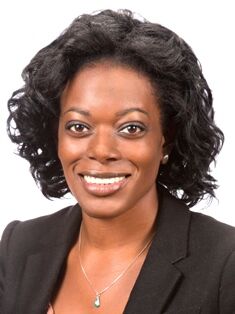 “I couldn’t decide between Israel and Latin America,” Shironda White said of the International Field Seminar options. “So I’m going to both.” Shironda, a first-year MBA candidate, is gearing up for a fourth module (quarter) of jet setting around the world as part of her MBA experience. With the eventual goal of eradicating food deserts in the US, she chose the Israel Field Seminar for its focus on entrepreneurial ecosystems and the Latin America Field Seminar for its focus on supply chain sustainability and corporate social responsibility (with trips that include wine tasting and learning about agriculture and aquaculture).
“I couldn’t decide between Israel and Latin America,” Shironda White said of the International Field Seminar options. “So I’m going to both.” Shironda, a first-year MBA candidate, is gearing up for a fourth module (quarter) of jet setting around the world as part of her MBA experience. With the eventual goal of eradicating food deserts in the US, she chose the Israel Field Seminar for its focus on entrepreneurial ecosystems and the Latin America Field Seminar for its focus on supply chain sustainability and corporate social responsibility (with trips that include wine tasting and learning about agriculture and aquaculture).
Questrom’s MBA offerings are unique in that they provide students with opportunities for outside study, whether it’s across the campus or around the globe. Cross-registration and dual degree programs at other BU schools are common, as are the international field seminars in Europe, Asia, Latin America, and other regions.
"This is one of the reasons I chose Questrom" Shironda says of the options she has to choose from. "I wanted to study abroad, but not necessarily in just one place. I'm also interested in cross-registering at the Law School and the School of Public Health, and not every business school allows cross-registration. Questrom truly gives me the opportunity to chart my own path.”
Among Shironda's other plans for her MBA experience: An internship this summer with the Bill and Melinda Gates Foundation. She secured the internship through Questrom's partnership with Management Leadership for Tomorrow, a premiere MBA professional development and business school prep program. The Gates Foundation invites prospective students from a select number of schools and MLT fellows to apply for its internship program, so attending Questrom was instrumental in helping her secure the offer.
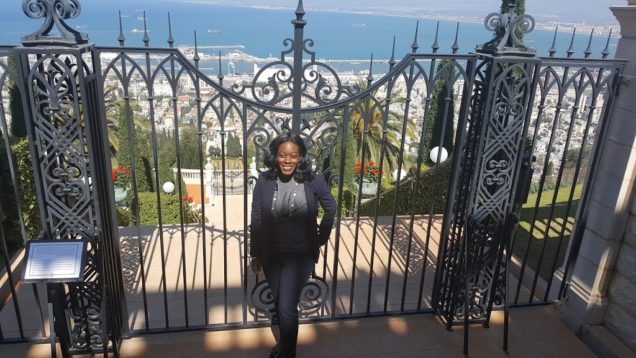
When asked what advice should would give to prospective students entering business schools, Shironda replies: “The best advice I ever received was from a consultant at Strategy& this summer. He said not to do the normal, standard stuff. Find out what really interests you, what you’re really passionate about, and if you don’t see an opportunity to do it, create one. For me that included not just international study and learning outside of the classroom about entrepreneurship and corporate social responsibility, but also building strong relationships with students at other schools, taking a range of classes in law and public health, and hopefully working with a faculty member next year on research in corporate social responsibility and social entrepreneurship. Questrom is both large enough and small enough to really find (or create) what works for you.”
Students of Questrom, MS-MBA Edition: Consulting at PwC
Chelsea Dilley, MS-MBA ‘17, Finds Her Passion in Financial Services Consulting
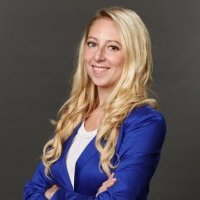 Converting an internship to a full-time offer isn’t easy. But for Chelsea Dilley, MS-MBA ‘17, a summer at PricewaterhouseCoopers as a Senior Associate in their Advisory - Financial Services - Risk & Regulation division proved successful.
Converting an internship to a full-time offer isn’t easy. But for Chelsea Dilley, MS-MBA ‘17, a summer at PricewaterhouseCoopers as a Senior Associate in their Advisory - Financial Services - Risk & Regulation division proved successful.
Recruiters at Questrom know that the emphasis on teaming is one of the MBA program's greatest strengths, and this was ultimately what really set Chelsea apart from her intern peers. Without having the same emphasis on teaming in their schools, working on team projects wasn't as easy a transition for them. Chelsea's managers were impressed with how well she could drop into a team and work collaboratively with anyone under tight deadlines and high client expectations.
The best advice Chelsea offered was to use the internship to continue to build your network. The company is evaluating you, but you are also evaluating the type of environment the company has and what it would be like to work there full-time. She suggests meeting new people and talking to them about their roles. That's a huge opportunity that interns often overlook because they're so focused on just doing the job. One of the things she really admired about PwC is that every year they have a Promotion Day where they celebrate everyone who was promoted within the year. During that time, they take the entire day off to celebrate, and for the 2016 Promotion Day they hosted Trevor Noah at Madison Square Garden as well as a performance painter. She really appreciated the way they celebrated employees' accomplishments.
Ultimately, Chelsea decided PwC was the perfect fit for her, and the firm agreed. She has just accepted a full-time offer and will start fall 2017.
Students of Questrom: PNP MBA Edition
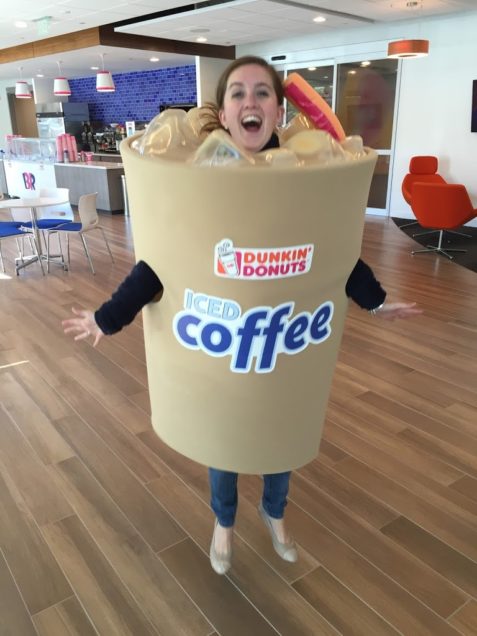 2nd-Year MBA Candidate Danielle Valle Gilchrist Helps Dunkin's Foundation Rebrand
2nd-Year MBA Candidate Danielle Valle Gilchrist Helps Dunkin's Foundation Rebrand
When asked about her biggest challenge during the internship, Danielle stated it was learning the corporate model. As a Public and Nonprofit (PNP) MBA candidate, Danielle comes from a government background where everyone approaches problem from a similar mindset. Having an internship in a corporate setting where there are multiple stakeholders and priorities reminded her that sometimes, obtaining stakeholder buy-in can be challenging. She now has an increased level of admiration for people in the Corporate Social Responsibility (CSR) field who are able to navigate the challenges.
Danielle planned her internship search early. She knew she wanted to work in Corporate Social Responsibility, and not only is this niche field difficult to enter, there also aren't many structured MBA internships in the public and nonprofit sectors in general. Leveraging her Questrom connections, she contacted alumni who are currently in the field and found out what they did for summer internships. She learned that Dunkin Brands had already hired Questrom students for this particular internship, so she connected with Questrom faculty who were able to make important introductions to Dunkin' Brands management.
What's next for Danielle? She plans to enter the field of Corporate Social Responsibility after graduation, and this internship, along with her pre-MBA experience, Questrom MBA, and faculty and alumni connections, will undoubtedly propel her to success.



